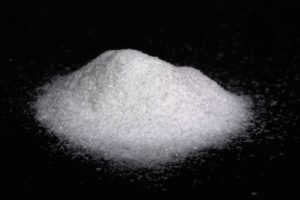 Finally... two states (California and New York) are seeking to ban 5 chemicals frequently added to food that are known to cause health problems (cancer, neurological problems, hormone disruptors). They have no reason to be in food (and yes, safer alternatives exist). The five chemicals of concern are: red dye 3, titanium dioxide, potassium bromate, bromated vegetable oil, and propylparaben.
Finally... two states (California and New York) are seeking to ban 5 chemicals frequently added to food that are known to cause health problems (cancer, neurological problems, hormone disruptors). They have no reason to be in food (and yes, safer alternatives exist). The five chemicals of concern are: red dye 3, titanium dioxide, potassium bromate, bromated vegetable oil, and propylparaben.
These additives are most commonly found in candy, baked goods, and soda. They are already banned in Europe. Once again the FDA is not protecting consumers, while Europe is way ahead of the US in protecting consumers. Of course the chemical industry is pushing back ($$ before consumer health!).
The bills are AB-418 Food product safety (California) and Bill S6055A - Prohibits certain food additives and food color additives (New York). If approved, both would go into effect in 2025.
Bottom line: Read ingredient lists on labels and avoid these 5 ingredients, plus as many other additives, preservatives, colors, artificial or natural flavors (all laboratory concoctions) as you can. Avoid ultra-processed foods and high-fructose corn syrup as much as possible. Best are ingredients that we all have in our kitchens.
Excerpts from NY Times: Two States Have Proposed Bans on Common Food Additives Linked to Health Concerns
Newly proposed bills in California and New York are putting food additives — the chemicals manufacturers add to food to act as preservatives or to enhance color, texture or taste — under the microscope. ...continue reading "Some Harmful Food Additives Could Finally Be Banned"

 Did you know that some other countries have stricter laws on food additives, drugs, and pesticides than the US? This is especially true with the European countries. It is especially aggravating to read that manufacturers sell foods with one set of ingredients in the US and a better set of ingredients in Europe. (Could it be because the FDA has such nice cozy relationships with Big Ag and lobbyists representing big chemical companies?) So... what can the ordinary person do? Read labels carefully. And try to buy as much organic food as possible, or buy from local farmers where you can find out how they are growing crops or raising animals.
Did you know that some other countries have stricter laws on food additives, drugs, and pesticides than the US? This is especially true with the European countries. It is especially aggravating to read that manufacturers sell foods with one set of ingredients in the US and a better set of ingredients in Europe. (Could it be because the FDA has such nice cozy relationships with Big Ag and lobbyists representing big chemical companies?) So... what can the ordinary person do? Read labels carefully. And try to buy as much organic food as possible, or buy from local farmers where you can find out how they are growing crops or raising animals.